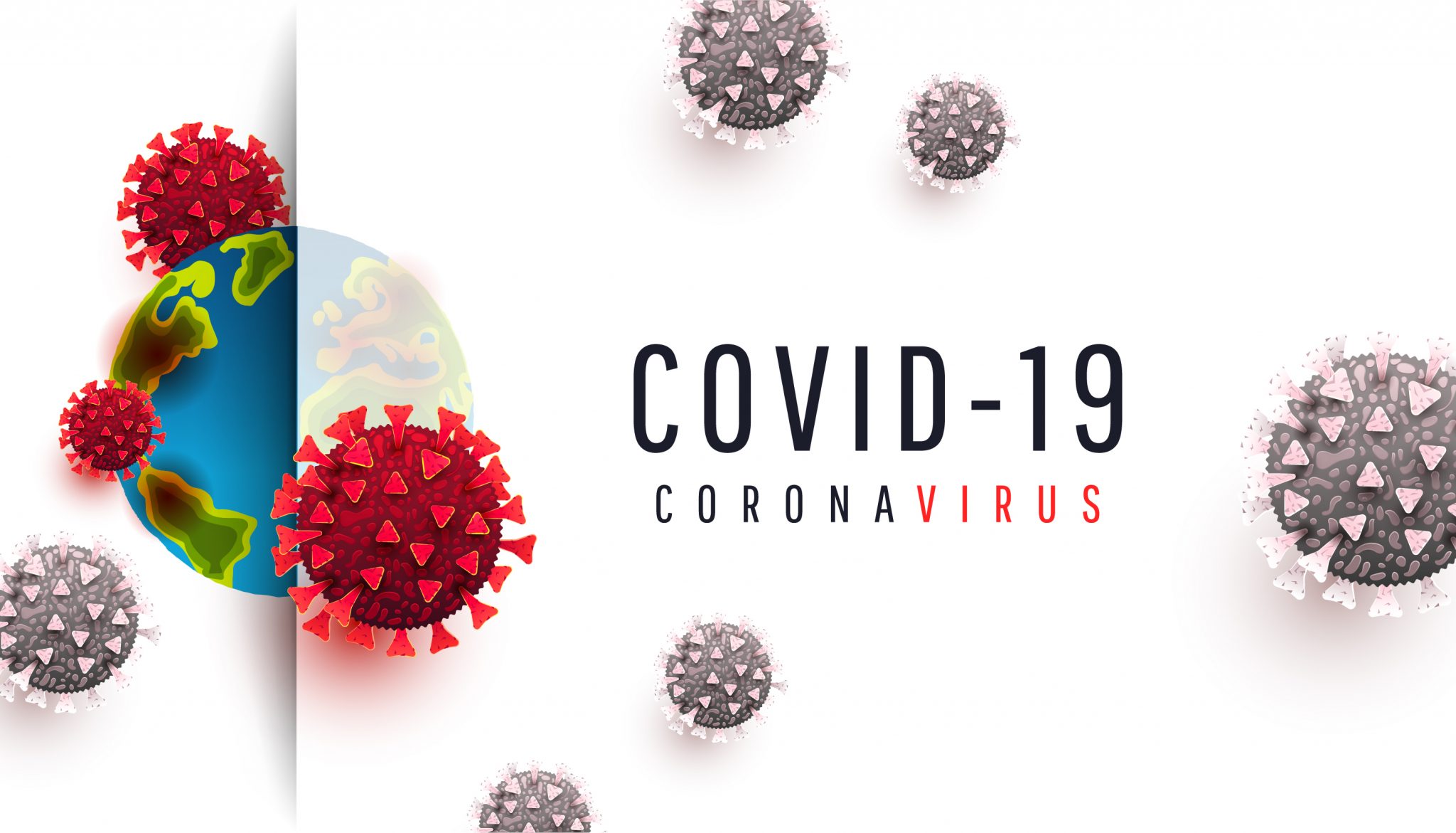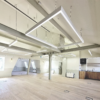Operating Procedure – Covid-19
Approved and signed by the Managing Director: Mark Savage
Record of amendments and additions
This document will be regularly reviewed and updated to provide the most current guidance on UK Government Advice and Best Practice.
| Revision: | Date: | Amendments: | Amended By: |
| 001 | May 2020 | Legislation update | N Jones |
| 002 | May 2020 | Legislation update | N Jones |
| 003 | 21.05.2020 | Poor performance reporting procedure added | N Jones |
1.0 General Statement
Gaysha recognises its responsibility to minimise the spread of Covid-19, whilst carrying out vital work for our customers and maintaining the safety and wellbeing of our employees. The following control measures must be adhered to during this unprecedented time, and Gaysha regularly update these control measures in line with government guidelines and industry best practice. Control measures are regularly distributed to all staff and stakeholders.
Covid 19 control measures when conducting “essential” works on site.
Control of risk
Each programme of works will be reviewed on an individual basis to analyse the individual risks present such as social distancing, procurement, customer restrictions etc. Where additional control measures are required to be implemented, these will be tailored and applied specifically to each individual programme of works, for example specific PPE requirements, staggering work times, team cohorting etc.
All Gaysha subcontractors will be required to conduct their own site-specific risk assessments, method statements and implement safe systems of work to cover their activities on site. These must include additional controls to maintain the health of all workers and third parties and include measures to restrict the spread of Covid-19.
Wherever possible, site surveys will be conducted virtually. Where site access is essential, the number of personnel attending the site will be controlled to minimise contact wherever possible. Site meetings will be carried out virtually using video conferencing apps to minimise contact.
Government guidelines on social distancing must be adhered to at all times whilst on site. Social distancing protocols will be communicated daily on all active sites.
Anyone who meets one of the following criteria should not come to site:
I. Has a high temperature or a new persistent cough – follow the guidance on self-isolation
II. Is a vulnerable person (by virtue of their age, underlying health condition, clinical condition or are pregnant)?
III. Is living with someone in self-isolation or a vulnerable person
Site Rules
The minimum control measures whilst working on site are as follows:
I. Operatives must frequently wash their hands using soap and water for a minimum of 20 seconds; especially after blowing their nose, sneezing or coughing, on arrival at work, before and after eating, after using public transport, and when they arrive home. Where facilities to wash hands are not available, hand sanitiser should be used. Additional pop-up hand sanitising stations have been provided on site.
II. Staff should keep 2 metres apart as much as possible
III. Work will be planned to minimise contact between workers and avoid skin-to-skin and face-to-face contact. Where face-to-face contact is essential, this will be kept to 15 minutes or less
IV. Sites and welfare facilities will be regularly cleaned
V. Signage will be positioned around the site to remind and enforce the site procedures
Reporting
All Covid-19 “incidents” must be reported in line with RIDDOR 13 requirements in Appendix 2.
The following occurrences must be reported to the heads of department and the SHEQ manager.
I. Any persons who attempt to attend site with Covid-19 symptoms
II. Any persons who develop Covid-19 symptoms whilst on site
III. Any persons not adhering to the site-specific control measures
IV. Any persons not adhering to the social distancing guidelines
V. Any persons who have recently come into contact with a confirmed Covid-19 case
2.0 What is Coronavirus (Covid-19), How is it spread & prevention in the workplace
Coronavirus is a type of common virus that infects your nose, sinuses or upper throat. The Covid-19 strain of the virus effects the upper respiratory system.
It has been suggested but not scientifically proven that Covid-19 is spread from person to person, usually via close contact, within 2 metres. This could be by physical contact such as shaking hands or touching contaminated surfaces. The virus is transmitted through droplets generated when an infected person coughs or sneezes, causing these droplets to become airborne and passing to a surface or person nearby, much like the common cold or flu.
People who are particularly at risk are those that are:
- Over 70 years of age
- Have a long-term medical condition
- Are pregnant
- Have a weakened immune system
Everyone should do what they can to prevent the spread of Covid-19. Best practice is:
DO
- Wash your hands with soap and water often – do this for at least 20 Seconds
- Always wash your hands when leaving home and returning, this includes arriving to and leaving work
- Use hand sanitiser get if soap and water are not available
- Cover your mouth and nose with a tissue or your sleeve (not hands) when you cough or sneeze
- Put used tissues in the bin immediately and wash your hands afterwards
- Avoid close contact with people who have symptoms
- Only travel on public transport if you need to
- Work from home where possible
DO NOT
- Touch your eyes, mouth, nose or face if your hands are not clean
- Do not have visitors to your home, including friends and family
Control measures in the workplace to prevent spread
- Staff should work from home, unless they are unable to do so
- Staff should avoid busy commuting times on public transport where travel is essential
- Ensure workplaces are clean and hygienic
- Staff should adopt social distancing, staying at least 2 metres (6 feet) away from other people wherever possible. Where social distancing is not possible, contact should be kept to a maximum of 15 minutes.
- All surfaces such as doors, handles, buttons, desks and tables are to be wiped with disinfectant regularly
- Promote good hygiene via handwashing
- Make hand sanitiser available
- Display posters to promote information on Covid-19
3.0 How long the virus can survive and Treatment
How long can the virus survive?
The Covid-19 virus can survive for hours to days on surfaces like countertops and doorknobs. How long it survives depends on the material the surface is made from.
Below is a guide to how long the virus can live on some of the surfaces you probably touch daily.
*Keep in mind that researchers still have a lot to learn about the new Coronavirus that causes COVID-19. For example, they don’t know whether exposure to heat, cold, or sunlight affects how long it lives on surfaces.
| Material | Example | Survival Duration |
| Metal | doorknobs, jewellery, silverware | 5 days |
| Wood | furniture, decking | 4 days |
| Plastics | packaging like milk containers and detergent bottles, subway and bus seats, backpacks, elevator buttons | 2-3 days |
| Stainless Steel | refrigerators, pots and pans, sinks, some water bottles | 2-3 days |
| Cardboard | shipping boxes | 24 hours |
| Copper | pennies, teakettles, cookware | 8 hours |
| Aluminium | soda cans, tinfoil, water bottles | 2-8 hours |
| Glass | drinking glasses, measuring cups, mirrors, windows | 5 days |
| Ceramics | dishes, pottery, mugs | 5 days |
| Paper | The length of time varies. Some strains of Covid-19 live for only a few minutes on paper, while others live for up to 5 days | Up to 5 days |
| Food | Covid-19 doesn’t seem to spread through exposure to food. Still, it’s a good idea to wash fruits and vegetables under running water before you eat them. Scrub them with a brush or your hands to remove any germs that might be on their surface. Wash your hands after you visit the supermarket | NA |
| Water | Covid-19 hasn’t been found in drinking water. If it does get into the water supply, your local water treatment plant filters and disinfects the water, which should kill any germs. | NA |
| Covid-19 can live on a variety of other surfaces, like fabrics and countertops. | ||
Treatment for Covid-19
There is currently no specific treatment for Covid-19. Antibiotics do not help as they do not fight viral infections. Isolation is recommended until you have recovered. NHS 111 advise that if symptoms become unmanageable then you are to contact the 111 helpline and seek medical advice.
4.0 What is social distancing (government guidance)
Social distancing measures are steps you can take to reduce the social interaction between people. This will help reduce the transmissionof coronavirus (COVID-19).
They are:
-
- Avoid contact with someone who is displaying symptoms of coronavirus (COVID-19). These symptoms include high temperature and/or new and continuous cough
- Avoid non-essential use of public transport, varying your travel times to avoid rush hour, when possible
- Work from home, where possible. Your employer should support you to do this. Please refer to employer guidance for more information
- Avoid large gatherings, and gatherings in smaller public spaces such as pubs, cinemas, restaurants, theatres, bars, clubs
- Avoid gatherings with friends and family. Keep in touch using remote technology such as phone, internet, and social media
- Use telephone or online services to contact your GP or other essential services
Everyone should be trying to follow these measures as much as is pragmatic.
We strongly advise you to follow the above measures as much as you can and to significantly limit your face- to-face interaction with friends and family if possible, particularly if you:
- are over 70
- have an underlying health condition
- are pregnant
This advice is likely to be in place for some weeks.
5.0 Social Distancing in the workplace
To reduce the spread of germs in the workplace:
- Stay at home if you have symptoms or are sick.
- Stop handshaking as a greeting.
- Hold meetings via video conferencing or phone call.
- Promote good hand and sneeze/cough hygiene and provide hand sanitiser for all operatives and staff.
- Take lunch at your desk or outside in the open air if possible, if not ensure you are sat 2m apart from others and you clean the area before and after use.
- Clean and disinfect surfaces/work areas regularly including any surface or item that may be touched.
- Consider opening windows where possible to increase ventilation.
- Do not share food.
- Only travel when absolutely necessary.
6.0 What to do if someone in the workplace develops symptoms
If anyone becomes unwell with a new, continuous cough or a high temperature in the business or workplace they should be sent home and advised to follow the stay at home guidance.
If they need clinical advice, they should go online to NHS 111 or call 111 if they don’t have internet access. In an emergency, call 999 if they are seriously ill or injured or their life is at risk. Do not visit the GP, pharmacy, urgent care centre or a hospital.
If a member of staff has helped someone who was taken unwell with a new, continuous cough or a high temperature, they do not need to go home unless they develop symptoms themselves. They should wash their hands thoroughly for 20 seconds after any contact with someone who is unwell with symptoms consistent with coronavirus infection.
It is not necessary to close the business or workplace or send any staff home, unless government policy changes. Keep monitoring the government response page for the latest details.
Travel arrangements
Anyone who has a new, continuous cough or a high temperature should be advised to quickly and directly return home and to remain there and initiate household isolation. If they must use public transport, they should try to keep away from other people and catch coughs and sneezes in a tissue.
7.0 Stay at home advice
Anyone should stay at home for at least 7 days if they present any symptom of Covid-19. If you live with other people, they should stay at home for at least 14 days, this is to avoid spreading the infection outside of the home. After 14 days, anyone you live with who does not have symptoms can return to their normal routine. But, if anyone in your home gets symptoms, they should stay at home for 7 days from the day their symptoms start. Even if it means they’re at home for longer than 14 days.
If you live with someone who is 70 or over, has a long-term condition, is pregnant or has a weakened immune system, try to find somewhere else for them to stay for 14 days.
If you have to stay at home together, try to keep away from each other as much as possible. If you still have symptoms after 7 days
After 7 days, if you no longer have a high temperature you can return to your normal routine. If you still have a high temperature, stay at home until your temperature returns to normal.
If you still have a cough after 7 days, but your temperature is normal, you do not need to continue staying at home. A cough can last for several weeks after the infection has gone.
Stay at home for 7 days if you have either:
- A high temperature – you feel hot to touch your chest or back
- A new continuous cough – this means you’ve started coughing repeatedly and for more than a day
DO NOT go to a GP surgery, Pharmacy or Hospital
You do not need to contact 111 to tell them you are staying at home
Use this NHS 111 online coronavirus service https://111.nhs.uk/covid-19 if:
- You feel you cannot cope with your symptoms at home
- Your condition gets worse
- Your symptoms do not get better after 7 days
Only call 111 if you cannot get help online
Stay at home advice
DO
- Try to keep at least 2 metres (3 steps) from other people in your home, particularly people over 70, or those with long-term health conditions
- Ask friends, family and delivery services to deliver things like food shopping and medicines but leave them outside
- Sleep alone, if possible
- Regularly wash your hands with soap and warm water for at least 20 seconds
- Drink plenty of water and take paracetamol to help with your symptoms
DO NOT
- Have visitors (ask people to leave deliveries outside)
8.0 Ending self-isolation
You should remain at home until 7 days after the onset of your symptoms. After 7 days, if you feel better and no longer have a high temperature, you can return to your normal routine. If you have not had any signs of improvement and have not already sought medical advice, contact NHS 111 online. If you have no internet access, call NHS 111.
Coughing may persist for several weeks in some people, despite the coronavirus infection having cleared. A persistent cough alone does not mean you must continue to self-isolate for more than 7 days.
If you have been symptomatic, then you may end your self-isolation after 7 days. The 7-day period starts from the day when you first became ill
If living with others, then all household members who remain well may end household-isolation after 14 days. The 14-day period starts from the day illness began in the first person to become ill. Fourteen days is the incubation period for coronavirus; people who remain well after 14 days are unlikely to be infectious.
After 7 days, if the first person to become ill feels better and no longer has a high temperature, they can return to their normal routine. If any other family members become unwell during the 14-day household- isolation period, they should follow the same advice – that is, after 7 days of their symptoms starting, if they feel better and no longer have a high temperature, they can also return to their normal routine.
Should a household member develop coronavirus symptoms late in the 14-day household-isolation period (for example, on day 13 or day 14) the isolation period does not need to be extended, but the person with the new symptoms has to stay at home for 7 days. The 14-day household-isolation period will have greatly reduced the overall amount of infection the rest of the household could pass on, and it is not necessary to re- start 14 days of isolation for the whole household. This will have provided a high level of community protection. Further isolation of members of this household will provide very little additional community protection.
At the end of the 14-day period, any family member who has not become unwell can leave household isolation.
If any ill person in the household has not had any signs of improvement and have not already sought medical advice, they should contact NHS 111 online. If your home has no internet access, you should call NHS 111.
The cough may persist for several weeks in some people, despite the coronavirus infection having cleared. A persistent cough alone does not mean someone must continue to self-isolate for more than 7 days.
9.0 Travel advice and Authority to travel
As the world responds to the Covid-19 Pandemic the FCO strongly advise British Nationals against non-essential travel. Any country can restrict travel without notice, this includes border controls. If you live in the UK and are currently travelling abroad, you are strongly advised to return as soon as practically possible. Many airlines are suspending flights and many airports are closing preventing flights from leaving. To find the most up to date information on how to travel safely please visit: https://www.gov.uk/guidance/travel-advice-novel-Covid-19
For travel to and from work for and on behalf of Gaysha, you are always required your authority to travel letter along with a form of identification.
Travel to and from work is to be limited to travelling during off peak times where possible and work start, and finish times are to be staggered to prevent a gridlock when booking into site. This will also reduce the contact on public transport. Traveling to work in company vehicles is to be undertaken as per government guidelines, travelling separately where possible. Where this is not possible PPE is to be worn in the vehicle and the window kept open to increase ventilation. All Company Vehicles are to hold a supply of disposable gloves, hand sanitiser and medical masks.
10.0 If you have pets in the household
At present there is no evidence that domestic pets such as cats and dogs, can be infected with Covid-19. It is however advisable to wash your hands before and after petting or caring for your pet to reduce the risk of infection spread to others in the household.
11.0 What control measures have Gaysha put in place?
Gaysha recognise the importance of implementing control measures across the business to prevent the spread of Covid-19 and ensure the safety of all staff, whilst maintaining high standards of work delivery to our clients.
Gaysha have put into enforcement the following control procedures:
- Gaysha have created detailed and site-specific risk assessments and method statements on Covid-19 which are in place across all sites. Gaysha’s method statement details site procedure from arrival on site until exiting the site, and expected protocols whilst working on site. Please see section 5 of appendices for examples of the full documents.
- Gaysha have put into place a Covid-19 provision and action plan which includes the following points:
- A news bulletin dedicated to the Coronavirus is regularly distributed throughout the company including advice on symptoms, preventative measures and health recommendations. This literature is based on information and advice from the WHO, NHS, HSE and RoSPA websites.
- A daily toolbox talk based upon the latest government advice and industry best practice is conducted on all active sites.
- Several informative posters have been printed and displayed in offices and welfares throughout the company. Please see appendices for details
- Alcohol gel has been provided in all welfare facilities, offices, and hand sanitising stations have been installed on all active sites
- Staff are being encouraged to frequently wash their hands using soap and water for a minimum of 20 seconds; especially after blowing their nose, sneezing or coughing, on arrival at work, before and after eating, after using public transport, and when they arrive home. Where facilities to wash hands are not available, hand sanitiser should be used.
- Staff are to adopt social distancing guidelines as set out by the government, maintaining a distance of at least 2m wherever possible. A Social Distancing Marshall has been introduced on each site and issued appropriate PPE, they are responsible for ensuring the SD measures are kept to at all times.
- Work will be planned to minimise contact between workers and avoid skin-to-skin and face-to-face contact. Where face-to-face contact is essential, this will be kept to 15 minutes or less. To discourage unnecessary face-to-face contact, working teams have been issued with coloured arm bands so that the Social Distancing Marshal can see with ease who is breaking the social distancing measures that have been put in place and address accordingly.
- The company have created an action plan should someone become unwell whilst at work. This is based upon the recommendations from ACAS
- If someone infected with Coronavirus come to work, the company will report this to PHE (Public Health England) and cooperate with all protocols
- A “Working from Home” protocol has been implemented, where all non-operational staff are working from home as per advice from the government.
- All workers over 70 years old, pregnant workers, or those with underlying health conditions have been advised to stop all non-essential contact with others.
- Gaysha have provided infra-red contactless thermometer “guns” across all offices and sites, where all staff/operatives will have their temperature measured before commencing work. Any staff found to have a temperature above 37.8oC will be sent home immediately, and advised to minimise all contact with others, and commence self-isolation.
- Gaysha have advised all staff, as per government advice, that if a family member is displaying coronavirus symptoms, the entire family should self-isolate for 14 days. If any person whom lives alone displays a fever of persistent cough, should self-isolate at home for a minimum of 7 days until symptoms subside.
12.0 Poor performance management
Gaysha recognise the importance of monitoring the performance of the implemented control measures across the business to prevent the spread of Covid-19 and to ensure the safety of all staff. To assist with this a poor performance reporting process has been implemented to monitor and re-educate reoccurring offenders of the implemented control measures. Breech Levels have been identified as 3 levels and will be subject to investigative action as stated below:
- Major – Instant removal from the work location & a review conducted, this will be subject to disciplinary action for PAYE staff or permanent removal from Gaysha’s approved contractor supply chain.
- Medium – Warning issued & documented, a maximum of 3 warnings can be issued.
- Minor – Warning issued & documented, a maximum of 5 warnings can be issued
Breech categories
- Major
- Spitting
- Medium
- Persistent social distancing breaches
- Disregard of temperature checking
- Minor
- Incorrect disposal of PPE
- Incorrect disposal of cigarette ends
- Note there is a permitted smoking route, this applies to offenders breeching covid-19 control measures and the permitted smoking route.
Once a breech has been identified the Project/line Manager will investigate and formally document on the Poor Performance Management Investigation form.
All reviews will be notified to the Contract Lead and directors for a review and final decision.








